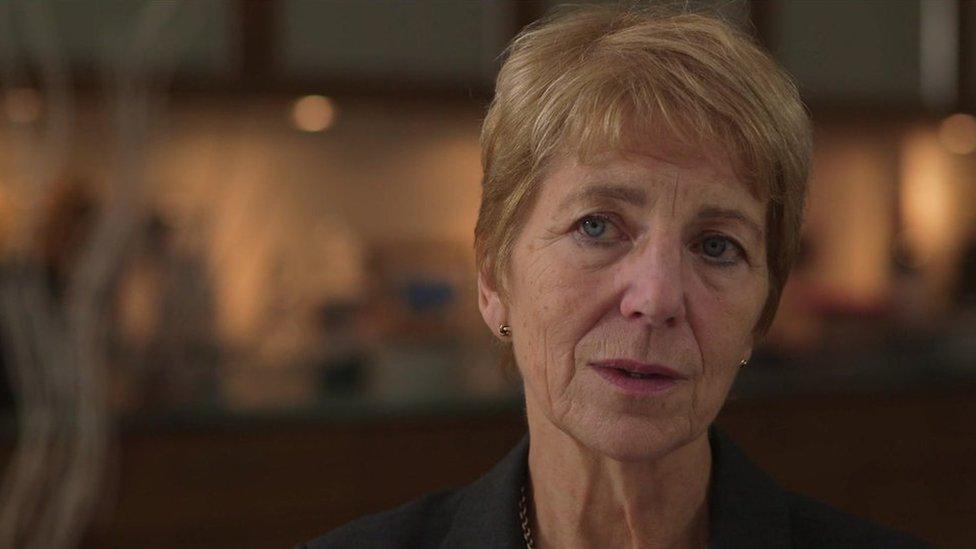The dangers of shaking babies
- Published
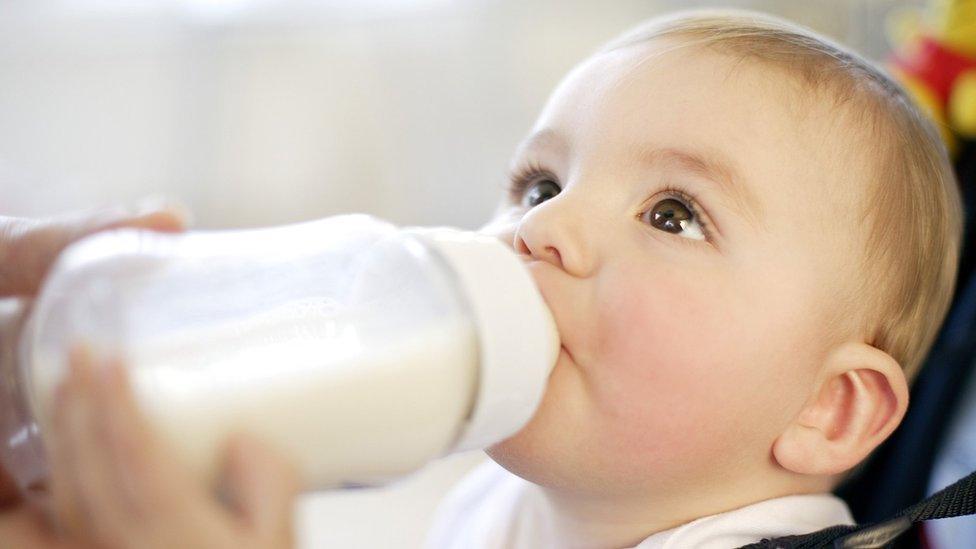
Dozens of babies are shaken or otherwise injured by their parents in the UK every year, children's charity the NSPCC says. But why does it happen and how can it be prevented?
Joanne Senior's son Charlie was shaken by his father when he was 15 weeks old, causing injuries that left him disabled and almost blind.
"It left him fighting for his life, they didn't think he would make it through the night and told us to call anybody we wanted there.
"He was having seizure after seizure and had to be put into an induced coma."
Her ex-partner, Paul Sykes - who admitted causing grievous bodily harm and was jailed for four years - had shaken Charlie. Miss Senior says only Sykes will ever know why.
He "just seemed to have it in him", she adds.
Nine years on, Charlie "can't do anything for himself" and needs constant care, and Miss Senior says she has suffered depression due to his situation.
"I manage to stay strong most of the time but I do have moments where it still hits me.
"I can only describe it as mourning for the child you were supposed to have."
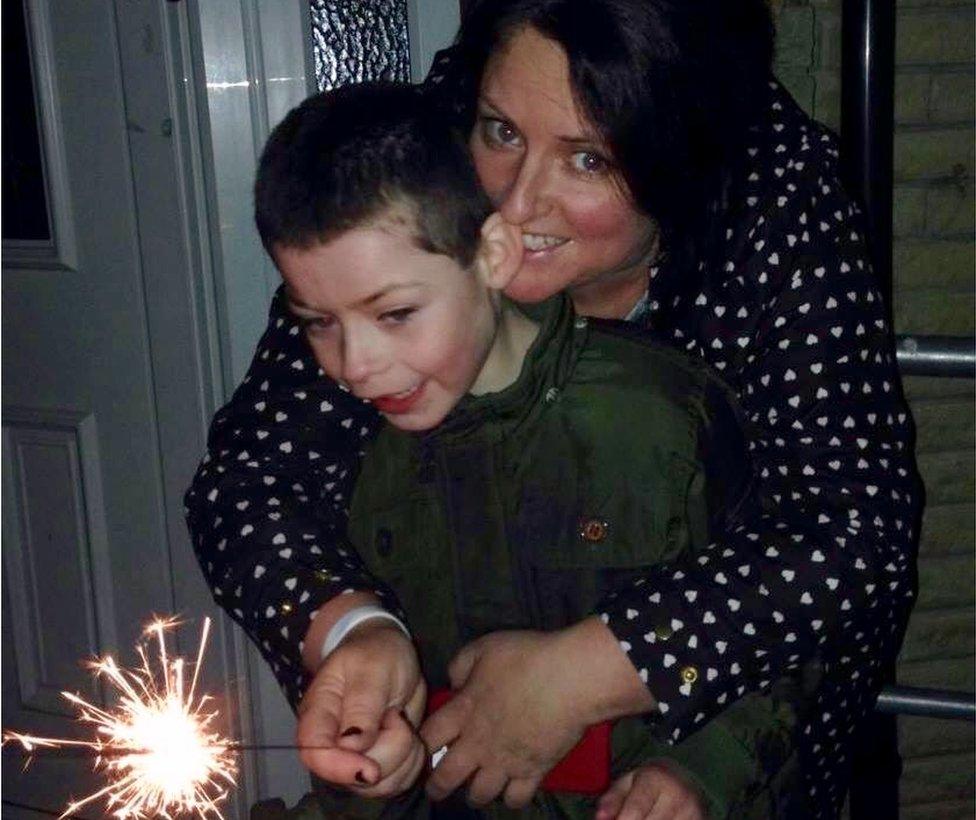
Joanne Senior says she hates Charlie's father for harming him
Estimates for the number of babies suffering "non-accidental head injuries" in the UK each year range from 14 to 33.8 per 100,000, the NSPCC says.
Based on a population of about 800,000 babies, external, this would mean 112 to 270 cases annually.
The NSPCC says these figures are "likely to be an underestimate", although some experts say many parents may have been wrongly accused of shaking their babies.
Injuries like Charlie's are sometimes referred to as "shaken baby syndrome", but the medical term is abusive head trauma (AHT).
Sabine Maguire, of Cardiff University, says the "peak age" for AHT cases happening is two to six months.
She says US research shows a peak in crying by babies at three months old - when healthy babies can cry for five hours a day - and she says this can be a "trigger" for violence.
'Darkness and pain'
Babies have softer brains, weaker neck muscles and relatively larger heads than adults, meaning a "sudden shake" can cause serious harm, she says.
She adds that it is "never safe to shake an infant", no matter what their age.
Coping with Crying, external is an NSPCC film designed to "influence the way parents react to their baby's crying" by helping them deal with the "frustration" it causes.
More than 50,000 UK parents have seen the film as part of a pilot, and the charity has found a "positive impact on knowledge, attitudes and behaviour".
Mae Pleydell-Pearce appears in the film, and says she is grateful to the NSPCC for the campaign.
When her son Ellis was three months old, her partner shook him "so hard he stopped breathing".
"Both of Ellis's eyes haemorrhaged, he had three broken ribs, a broken leg and his brain was severely damaged," she says.
Ellis was left disabled - in a world of "darkness, pain and the inability to move" - and in need of constant care.
He died in 2009, aged almost 14, and a coroner said his death had been caused by the injuries he suffered as a baby.
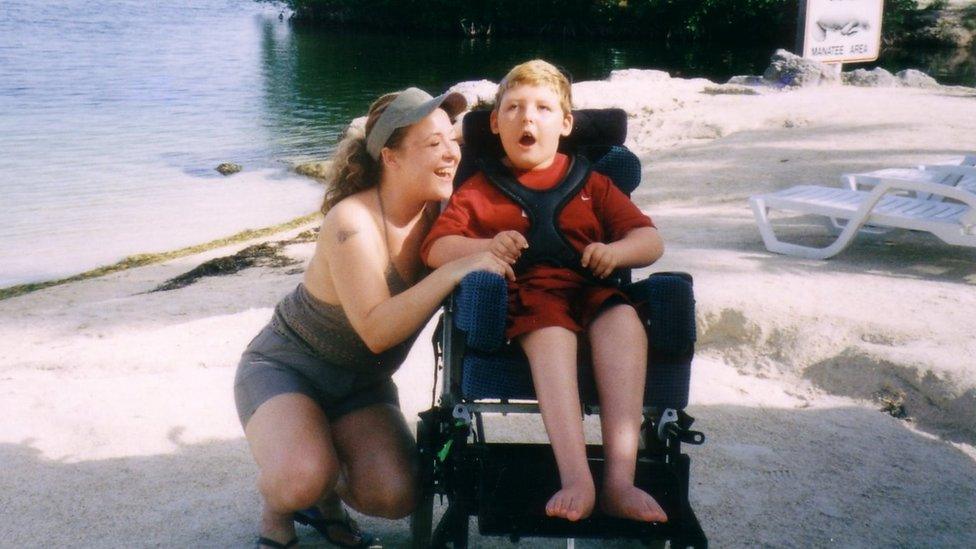
Mae Pleydell-Pearce says her son Ellis was frequently admitted to hospital
Asked whether the NSPCC film might have prevented her ex-partner's attack, Mrs Pleydell-Pearce says she would "like to think it would've helped".
She has "no way of knowing" why her ex-partner shook Ellis, but she supposes it was due to anger at him crying.
She urges parents not to underestimate "how precious babies are".
"In the blink of an eye you can lose your temper and do something that will change not only your baby's life but also yours and your family's life forever."
Official figures, external show children under 12 months old are proportionately the most likely victims of homicide - murder, manslaughter and infanticide - in England and Wales.
In the year to March 2015, 25 baby deaths were recorded as homicide. That's a rate of 36 per million - four times higher than the homicide rate across all age groups.
NSPCC policy analyst Alice Haynes says "most if not all" baby killings could be prevented by giving parents more support.
'Impulsive act'
Caring for a baby puts parents under pressure, changes their relationships and leaves them sleep deprived.
And this period is even harder for people facing other problems such as poverty, substance abuse and poor mental health, she says.
Peter Sidebotham, of Warwick Medical School, says baby killings are "almost exclusively" carried out by family members, with the largest proportion resulting from an "impulsive act" by a father or stepfather.
He says such killings are often triggered by stress from factors like sleep deprivation and a baby crying, and perpetrators do not usually intend to kill.
But he says these killings usually occur against "a background of violent behaviour including domestic violence" - a situation which makes a baby "very vulnerable", he adds.
Despite research suggesting men are responsible for just over twice as many AHT cases as women, Dr Maguire says new fathers get very little education and support.
She says society is "quick to point the finger" at fathers, some of whom will suffer post-natal depression and many of whom become concerned about their mental health, external.
"We ignore fathers at our peril," she adds.

'10-minute timeout'
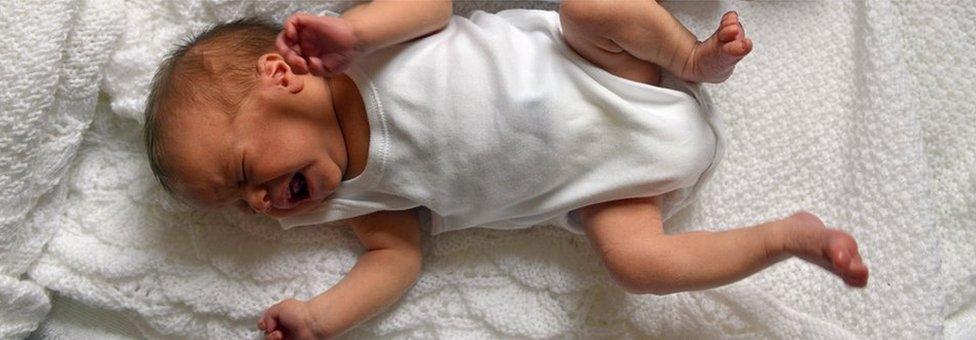
Father-of-three Neil Sinclair says caring for a baby takes people "completely out of their comfort zone".
His oldest child - now 14 - cried "from the moment he was born until he was about two", and Mr Sinclair remembers thinking he must either "run for the hills" or work out how to cope.
He says men who feel angry and frustrated should ask for help.
"I remember how horrible I used to feel when those feelings came over me," he says.
But he understands why many fathers do not talk about these feelings, as they risk being viewed as a "potential abuser".
He says he used to ask his wife to take the baby, or simply put him down somewhere safe so he could take a "10-minute timeout".

- Published29 April 2016
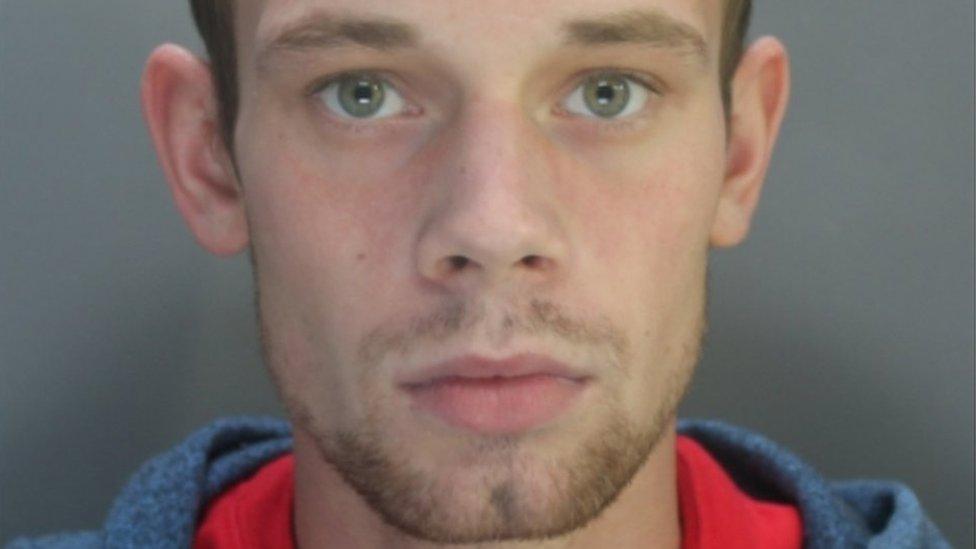
- Published22 April 2016
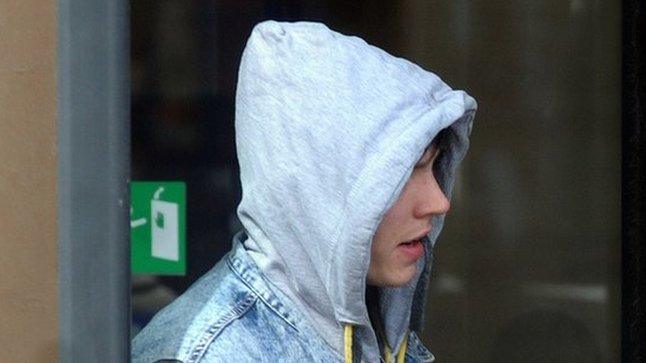
- Published11 March 2016
